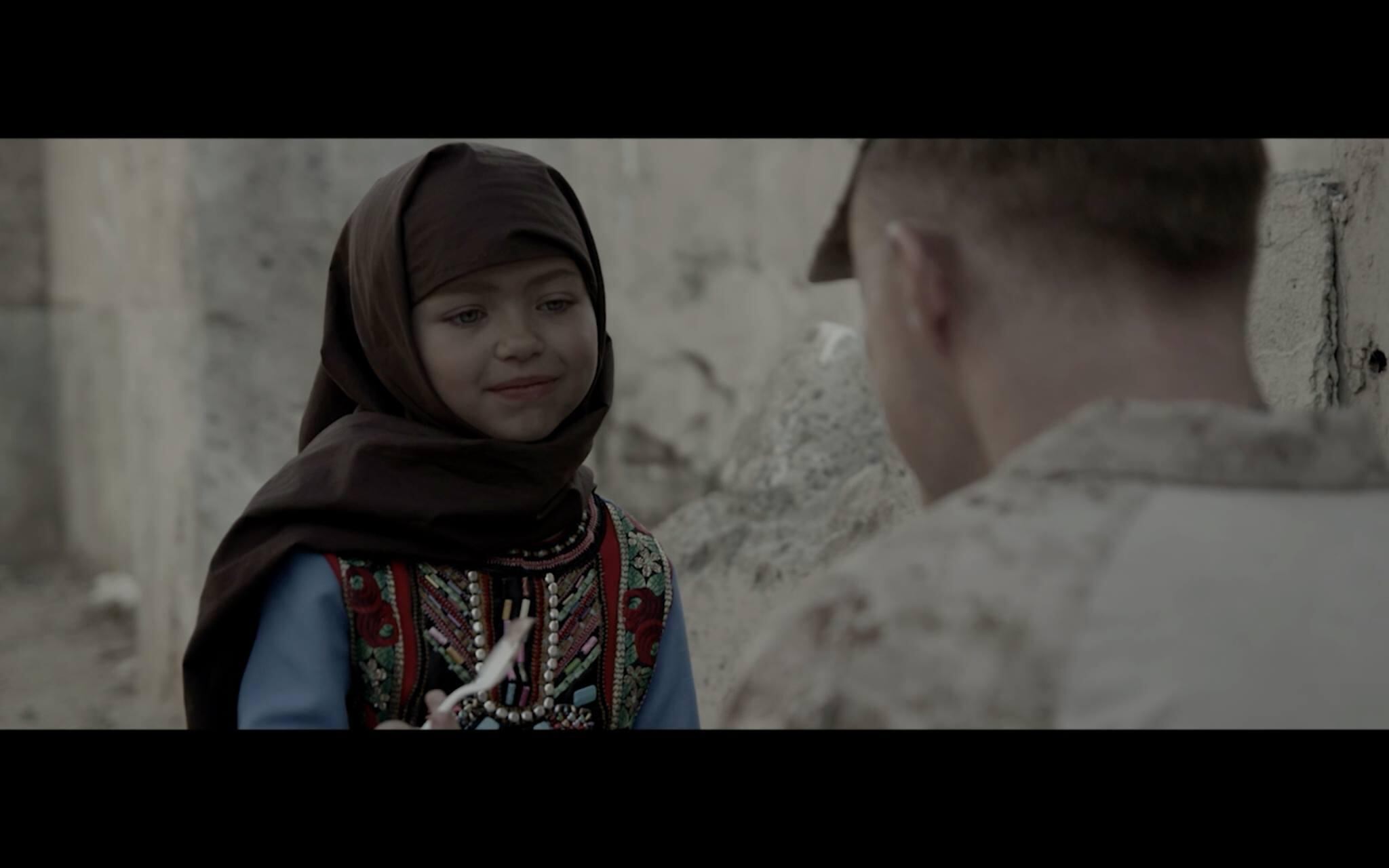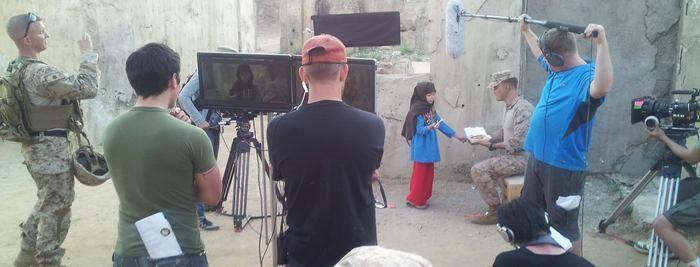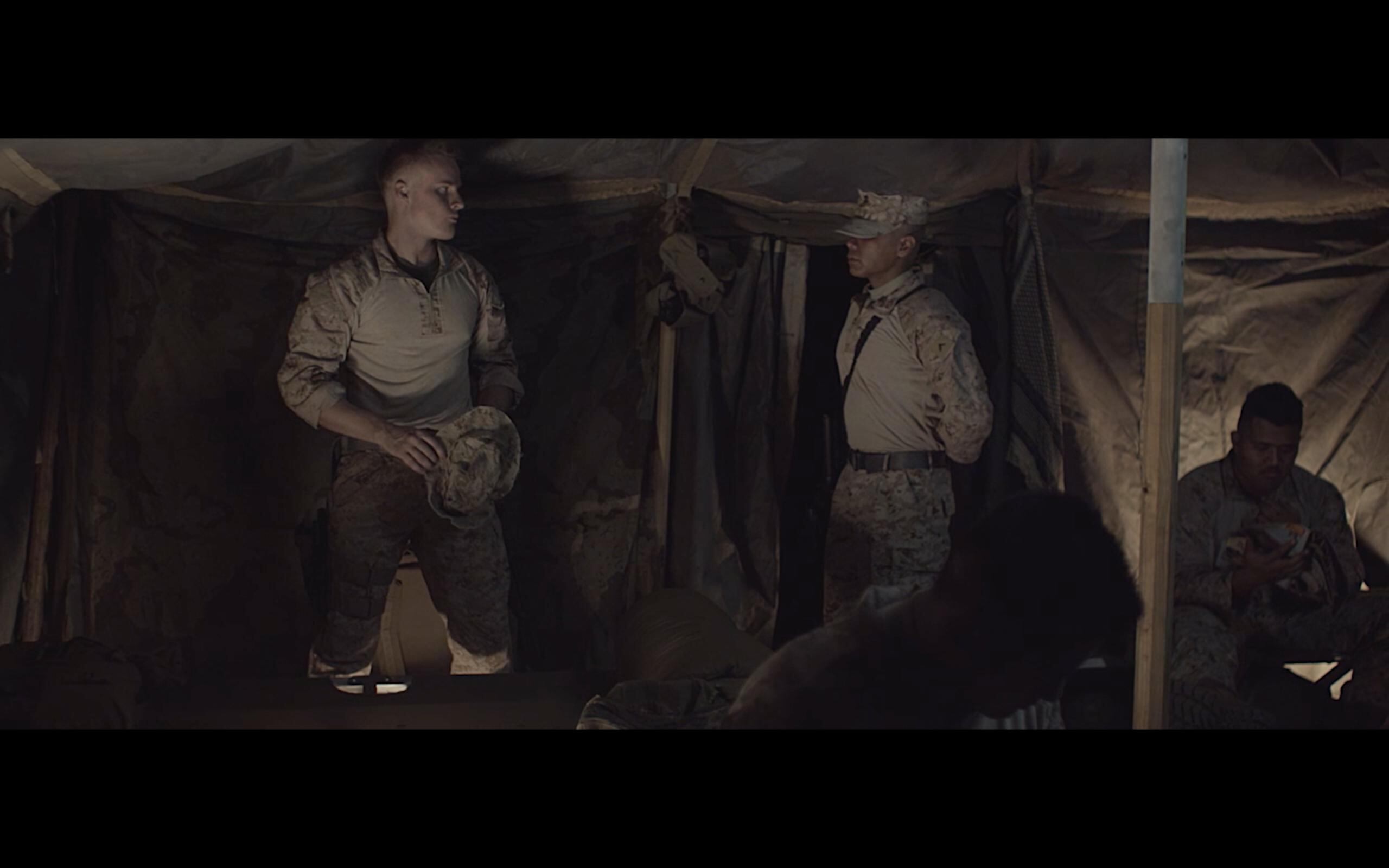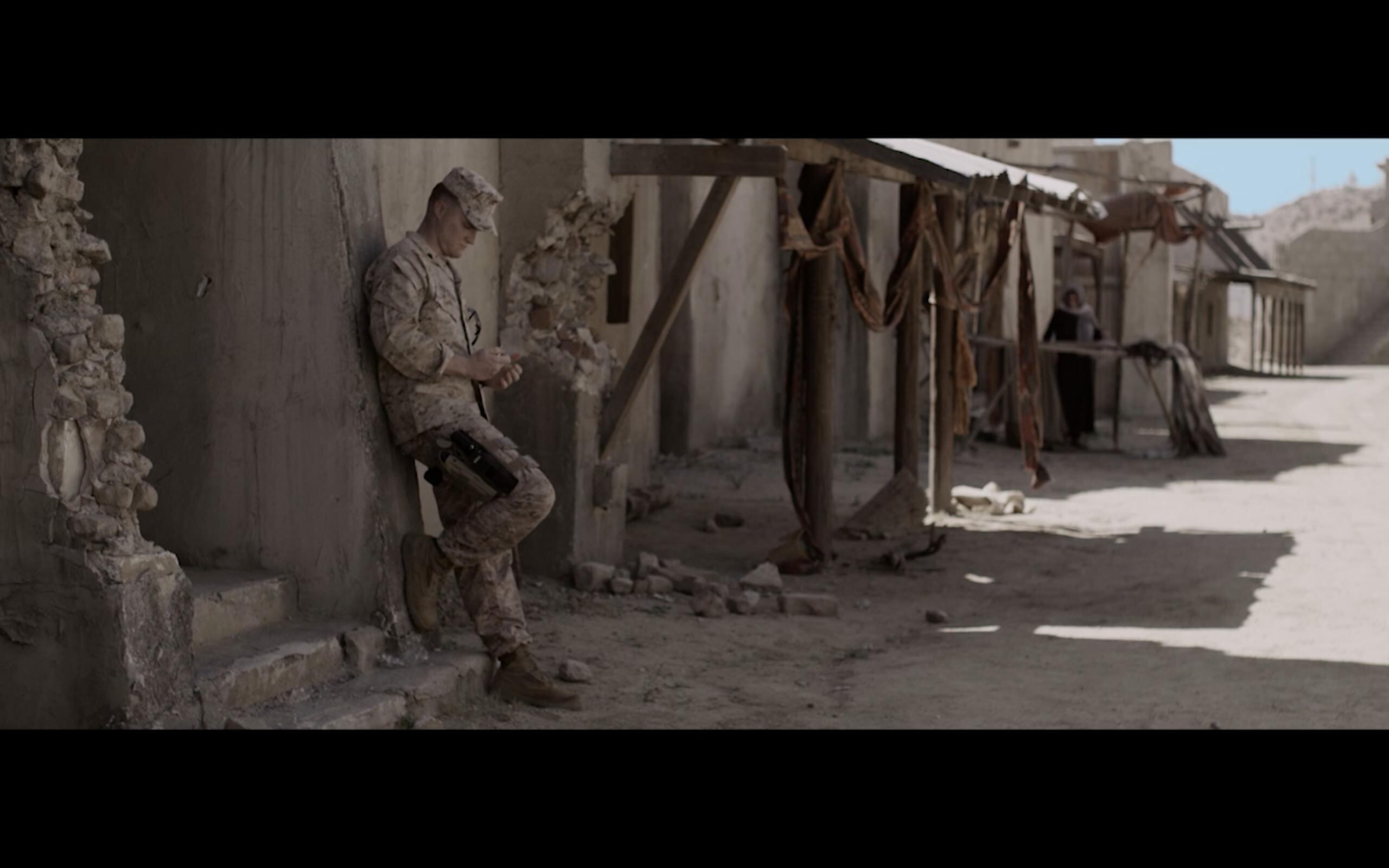But after three years of night school for film, industry networking and fundraising — all while trying to assemble a reliable crew and hold down a day job — Young finally saw his project come to completion. His short film, "Marza," based on his experiences serving in Iraq and Afghanistan, was shown at the military-themed GI Film Festival in Fairfax, Virginia.
Young, 29, served from 2004 to 2012 and left the Marine Corps as a staff sergeant.

Production still from "Marza." Filmmaker Regan Young wants to return — as a private citizen — to Afghanistan to see Mursal, the young Afghan girl who inspired the title character.
Photo Credit: Courtesy of Regan Young
"It was like a shotgun blast," Young said. "I turned it into a script because that's how I knew to channel my feelings."
Young is one of many troops and veterans turning to the big and small screens to tell their stories, honor their fallen comrades and heal past wounds. Many, however, lack the technical skills and industry connections needed to realize their projects.
Fortunately, there are more tools and resources for filmmakers — especially military filmmakers — than ever before. It's a matter of knowing where to look.

A behind-the-scenes view of the filming of "Marza." The short film was shown at the military-themed GI Film Festival in Fairfax, Va., and filmmaker Regan Young says he hopes to turn it into a full-length movie.
Photo Credit: Courtesy of Regan Young
"We want strong, unique and compelling stories," Gann said. "It's all about your story. It's not about that cool crane shot."
At a GI Film Festival filmmaking panel, Gann said that while festival audiences may overlook low-quality picture, they are less forgiving about audio.
"Don't worry about the camera. Worry about the sound," he said.
Young, for his part, emphasizes the role of collaboration.
"Don't try to do everything yourself," he said. "Reach out. Assemble the right crew and listen to them."

Production still from "Marza."
Photo Credit: Courtesy of Regan Young
"Find the people that share your passion," Young added.
Those further along — with a product to show but who are unsure of what to do with it — face the challenging question of distribution. Online streaming may provide a small trickle of viewers, but for many amateur filmmakers, a film festival is the best bet for a launch.
The GI Film Festival, which recently rolled up the carpet on its ninth year, was founded in part as a way to help first-time military filmmakers get their voices heard. The prominence of the relatively young festival was on full display when screen luminaries such as R. Lee Ermey and Dolph Lundgren walked the red carpet.
Besides a screen and a guaranteed audience, film festivals also provide important networking deals. Small-budget indie films such as "El Mariachi" and "Clerks" were brought to the big leagues by studio execs and scouts searching film festivals for fresh, innovative voices.
Of course, knowing your audience is important.
"There is a festival for every film, but your film is not for every festival," Gann said.
Gann, a longtime festival programmer, also rattled off the do's and don'ts of the festival circuit.
"We want you to help us market your film," Gann said, sharing horror stories of filmmakers who showed up to festivals without knowing the log line — one-sentence synopsis — of their films.
Gann recommends taking merchandise and touching base with area radio stations to build a critical level of anticipation and enthusiasm around a project.
"The whole point of a film festival is to build a buzz," Gann said.
Of course, some ideas are better told through the small screen. Many veterans have found success writing, directing, consulting for and even acting in military-themed television shows on channels such as History, Spike and Discovery.
Michael Sorensen, vice president of development and production at Discovery, told a GI Film Festival panel that the ever-evolving nature of TV presents a great opportunity to newcomers looking to break into the industry.
"TV doesn't stop," Sorensen said.
Sorenson and co-presenter Brent Hatherill of the American Heroes Channel also stressed the importance of bringing something new and different to the table when pitching to a major television network. Bringing special access or unique talent into the negotiations can only strengthen your position, they said.
And — if you choose to go the TV route — don't assume that what you bring to the boardroom will be what viewers see on their screens.
"Be malleable," Hatherill said, echoing the need for shows to "fit" the channel's audience.
Though filmmaking and producing are difficult jobs, the rewards at the finish are often more than worth it.
With "Marza" now under his belt, Young is looking forward to new projects, bigger budgets and a new career. He wants to return — as a private citizen — to Afghanistan to see Mursal, the young Afghan girl who inspired the title character in "Marza."
He also hopes to build the short into a feature film, calling the mission a labor of love.
"Those girls were on our side," Young said. "I wanted people to see that there's more that goes on over there."

Marine veteran Regan Young's short film, "Marza," is based on his experiences serving in Iraq and Afghanistan.
Photo Credit: Courtesy of Regan Young





